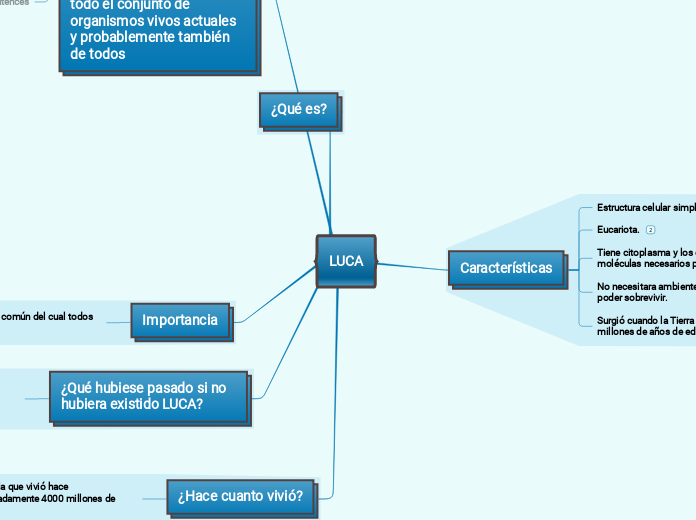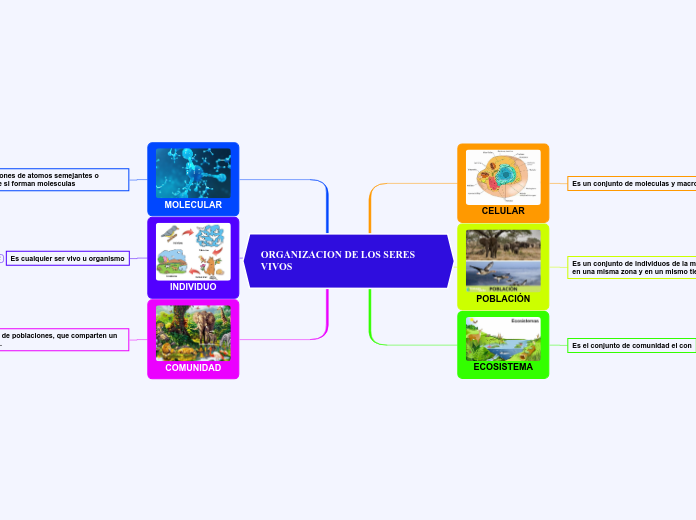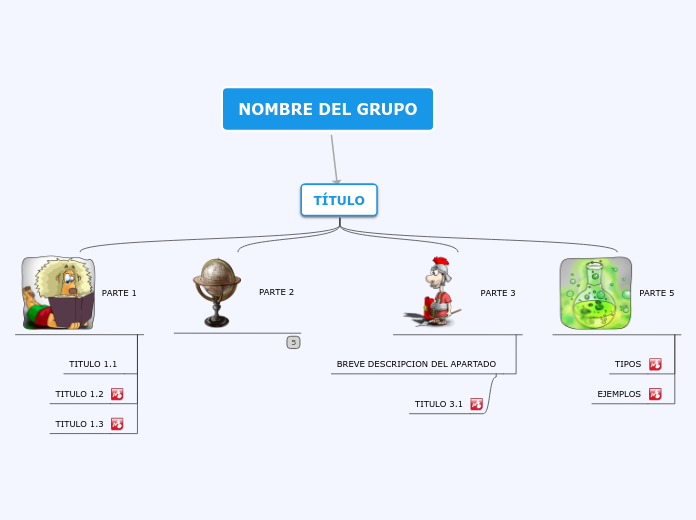LUCA
The part of speech is a category to which a word is assigned according to its syntactic functions. In English the main parts of speech are noun, pronoun, adjective, determiner, verb, adverb, preposition, conjunction, and interjection.
¿Hace cuanto vivió?
A conjunction is a word like 'if' 'but' or 'and' which is used to connect sentences or clauses together.
Se calcula que vivió hace aproximadamente 4000 millones de años.
¿Qué hubiese pasado si no hubiera existido LUCA?
A preposition is one of the most exciting parts of grammar. A preposition is used to describe the location of something in relation to something else.
No existiéramos ya que de LUCA descendemos todos, ya que es el antepasado común de todos.
A group of words used with the force of a single preposition is called phrase preposition.
according to, by means of, owing to, with a view to, in place of, in front of, etc.
Importancia
An interjection is used to express emotion in a sentence.
Think of other interjections!
Es el antepasado común del cual todos descendemos.
¿Qué es?
A numeral is a word or phrase that describes a numerical quantity.
Some theories of grammar use the word 'numeral' to refer to cardinal numbers that act as a determiner to specify the quantity of a noun, for example the 'two' in 'two hats'.
El último antepasado común universal, conocido por sus siglas en inglés LUCA, es el antepasado común más reciente de todo el conjunto de organismos vivos actuales y probablemente también de todos
First, second..
Características
A pronoun is a word that can be used in place of a noun, typically after the noun itself has already been stated.
Surgió cuando la Tierra tenía apenas 560 millones de años de edad.
Reciprocal pronouns are used for actions or feelings that are reciprocated. The reciprocal pronouns are each other and one another.
Each other, one another
No necesitara ambientes extremos para poder sobrevivir.
A reflexive pronoun ends with ...self or ...selves and refers to another noun or pronoun in the sentence (usually the subject of the sentence). The reflexive pronouns are myself, yourself, herself, himself, itself, ourselves, yourselves, and themselves.
Itself, Himself
Tiene citoplasma y los orgánulos y moléculas necesarios para vivir en él.
Demonstrative pronouns are used to demonstrate (or indicate). This, that, these, and those are all demonstrative pronouns.
This, These
Eucariota.
Possessive pronouns are used to show possession. The possessive pronouns are mine, yours, his, hers, ours, and theirs.
His, Your
Estructura celular simple
The personal pronouns are I, you, he, she, it, we, they. More often than not (but certainly not always), they replace nouns representing people.
Create sentences
He, They









